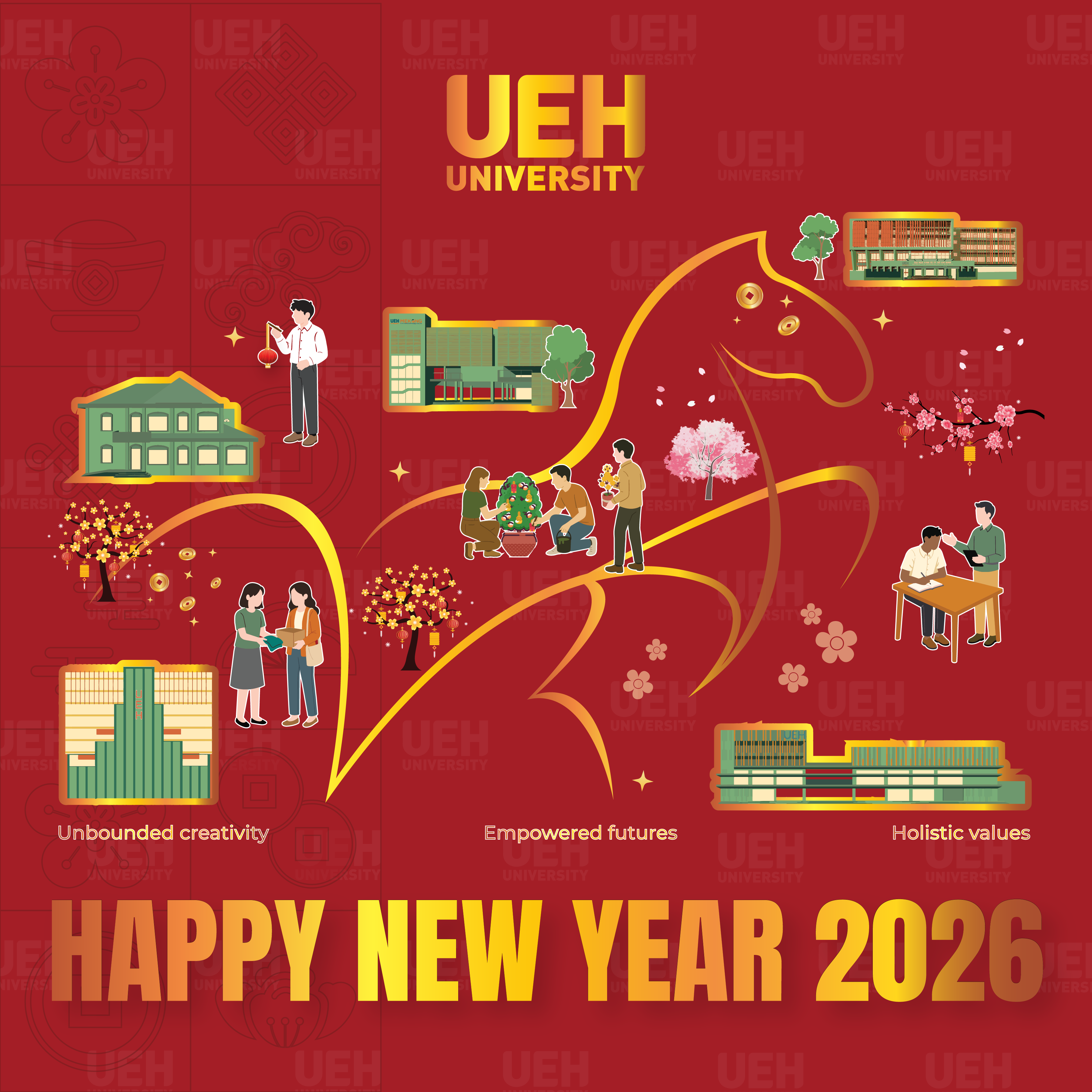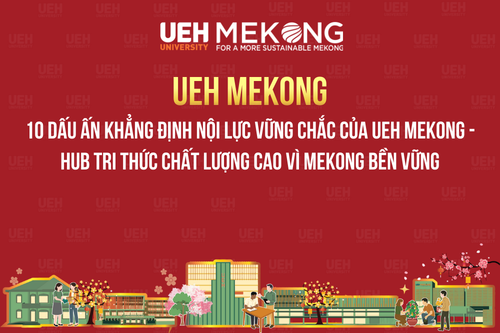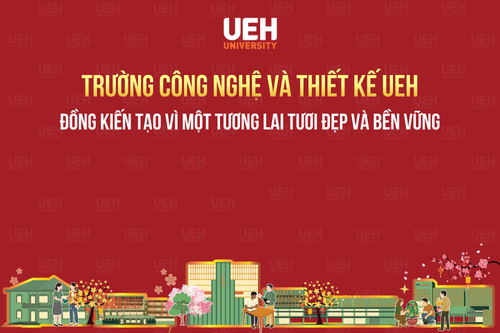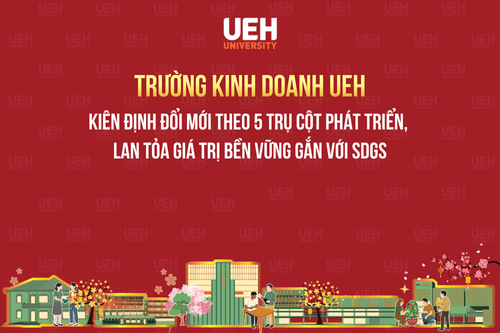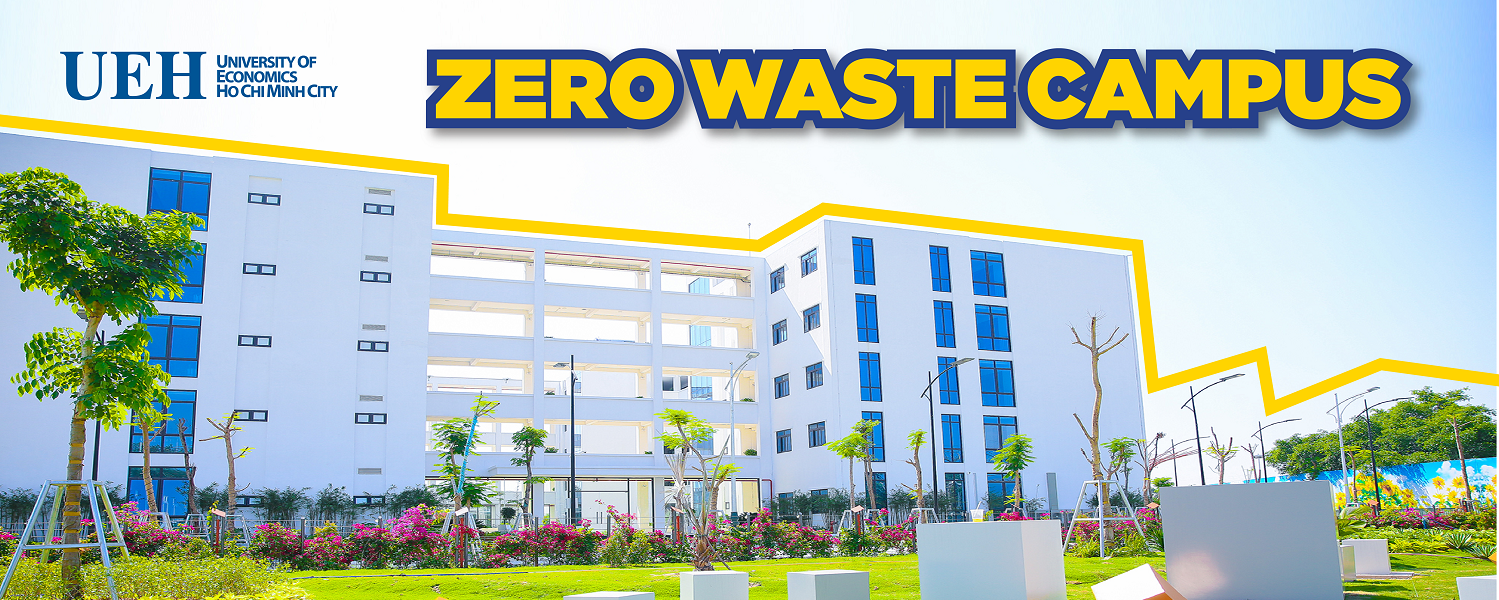
UEH kicked off the Zero Waste Campus project
17 May, 2021
University of Economics Ho Chi Minh City (UEH) cooperated with the Vietnam Zero Waste Alliance (VZWA) to implement the Zero Waste Campus project. The main goal of the project is to build a model of Zero Waste Campus, apply the Zero Waste solution in university waste management, and prioritize the Rejecting - Reducing - Reusing approach for non-biodegradable waste.. The program will start from April to the end of October 2021 at UEH - Nguyen Van Linh Campus.
Global plastic waste crisis
Vietnam and most countries in the world are facing a waste crisis. Instead of solving the root of the problem, inappropriate treatment solutions (burial, incineration) contribute to environmental pollution and global warming. However, these treatment measures still exist quite popularly in many parts of the world, including Vietnam.
Meanwhile, the amount of plastic waste has increased to an alarming level, placing significant pressure on the environment and society. According to statistics, out of 8.3 billion tons of plastic ever produced, only 9% of plastic is recycled. Every minute 1 million plastic bottles are consumed, and 5,000 billion plastic bags are made annually. Notably, Vietnam is currently the 4th country in the world regarding the amount of plastic waste in the ocean.
In 2020, to reduce the amount of plastic waste in particular and waste in general in Vietnam, Prime Minister Nguyen Xuan Phuc has issued Directive No.33/CT-TTg on strengthening management, reusing, recycling, treating, and minimizing plastic waste, which requires agencies, state administrative units and municipalities to promulgate plans to reduce, classify, collect, reuse, recycle and treat plastic waste; continue to promote and soon implement the Plan of implementing the target that until 2021, urban shops, markets, and supermarkets do not use disposable plastic products; By 2025, the country will not use disposable plastic products.
The Zero Waste Campus model
ecycling plastic is not enought when it’s consequences may relate to human health and environment. Accordingly, the Vietnam Zero Waste Alliance (VZWA) claims that "Zero waste practice" is the most sustainable solution and creates a circular economy for society. In particular, schools play an essential role in raising the awareness of young people about environmental protection. It is the premise for the idea of implementing the UEH - Zero Waste Campus project. The project is part of the strategy to build a Zero Waste model in the community, piloted at the University of Economics Ho Chi Minh City (UEH) - Nguyen Van Linh Campus with the cooperation, consultancy and technical support from the Vietnam Zero Waste Alliance (VZWA).
 (2).jpg)
The specific goal of the project includes: t least 70% of total respondents will understand the meaning ofwhat it means to be Zero Waste after the project; the amount of general waste going to landfills will decrease by about 40%; persistent waste (including disposable plastic, unnecessary products, non-biodegradable waste) will reduce by about 30%; organic waste will be processed to become compost; recycled waste will be collected and taken to the recycling facility; reducing the use of unnecessary, disposable or non-compostable plastic products.
In order to implement action goals, University of Economics Ho Chi Minh City (UEH) and the Vietnam Zero Waste Alliance (VZWA) signed a memorandum of understanding (MOU). The signed content aims todesign, consult and plan the UEH - Zero Waste Campus project, including the development of solutions to manage and reduce waste in the university and campaigns to improve waste awareness, adopt a Zero Waste lifestyle and turn waste into a resource.
Dr. Bui Quang Hung - UEH Vice President, shared: "Towards the "Green University" model, University of Economics Ho Chi Minh City is actively cooperating with the Vietnam Zero Waste Alliance (VZWA) in activities of managing, minimizing, turning waste into a resource; communicating and implementing a roadmap to build the Zero Waste Campus. The project expects all staff, students and stakeholders at the university to increase awareness of waste issues, understand and practice the "Zero Waste" lifestyle.
Accordingly, the Vietnam Zero Waste Alliance (VZWA) initially surveyed students' perceptions, assessed the current situation of waste at UEH - Nguyen Van Linh Campus, and will continue to coordinate with the school to implement specific activities. according to the project's roadmap.
 (3).jpg)
The Vietnam Zero Waste Alliance (VZWA) trains volunteers on the waste audit process
 (4).jpg)
 (6).jpg)
Volunteers gather and organize waste sorting at source
 (7).jpg)
 (8).jpg)
 (9).jpg)
Volunteers count, weigh, measure and record to determine the amount, type and label of waste at the source
Ms. Quach Thi Xuan, Coordinator of the Vietnam Zero Waste Alliance (VZWA) said: “The Zero Waste Campus project marks a new turning point in the partnership between UEH and the Vietnam Zero Waste Alliance (VZWA). This is a "long-term" program with special meaning to raise awareness of environmental protection with practical actions ".
The project helps to limit plastic waste, protect the health of students and staff from the detrimental effects of plastic waste, and at the same time contributes to building UEH - Nguyen Van Linh Campus in the direction of "Green Universty" - Green, Environmentally friendly Universty.
 (10).jpg)
Vietnam Zero Waste Alliance (VZWA) was established in October 2017, being a network of organizations and individuals who have the same interest in applying "zero waste" practices to better manage solid waste, reduce RTN, save natural resources and protect the environment. This is a comprehensive and optimal approach to solid waste management, applied in many parts of the world by the International zero waste Alliance.
The press agency reported:
- The Education Times newspaper: Kicked off the project of Zero Waste Campus at University of Economics Ho Chi Minh City
- Ho Chi Minh City Party Committee website: The University of Economics Ho Chi Minh City kicked off the Zero Waste Campus project
- VOH Radio: Kick-off the Zero Waste Campus project
News, photos: Department of Marketing and Communication.

